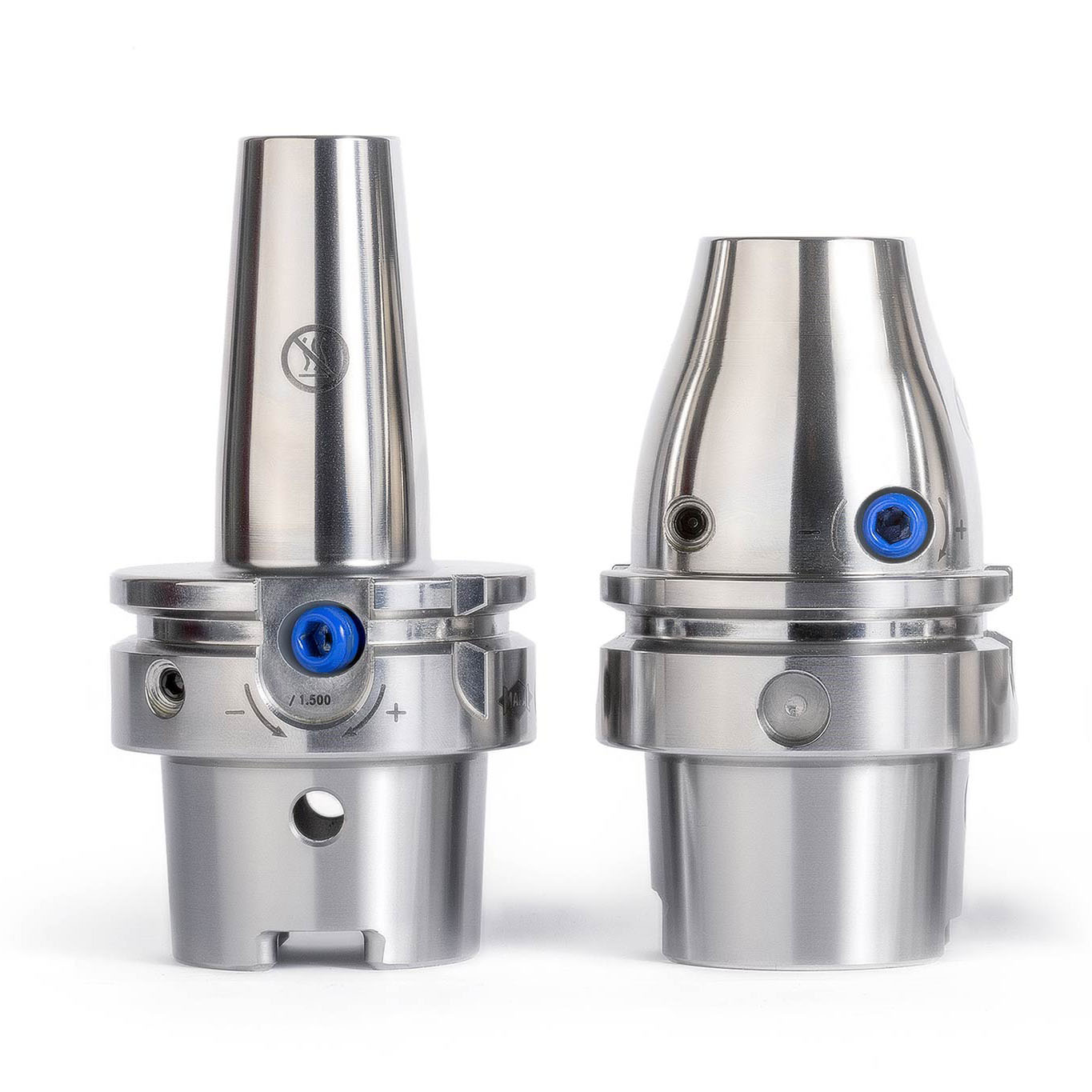01.01.2019
Changing Mobility
New Challenges, New Solutions
Electric motors and other elements of electric vehicles are components to which vehicle manufacturers and their suppliers have been devoting considerable attention for some time now. Designing new parts and manufacturing them in a way that is suitable for series production often present a challenge, and the tight tolerances require call for specialist expertise. In 2017, MAPAL worked with machine tool manufacturer HELLER to overcome just such a challenge and to get manufacturing processes for a newly designed stator housing ready for series production.
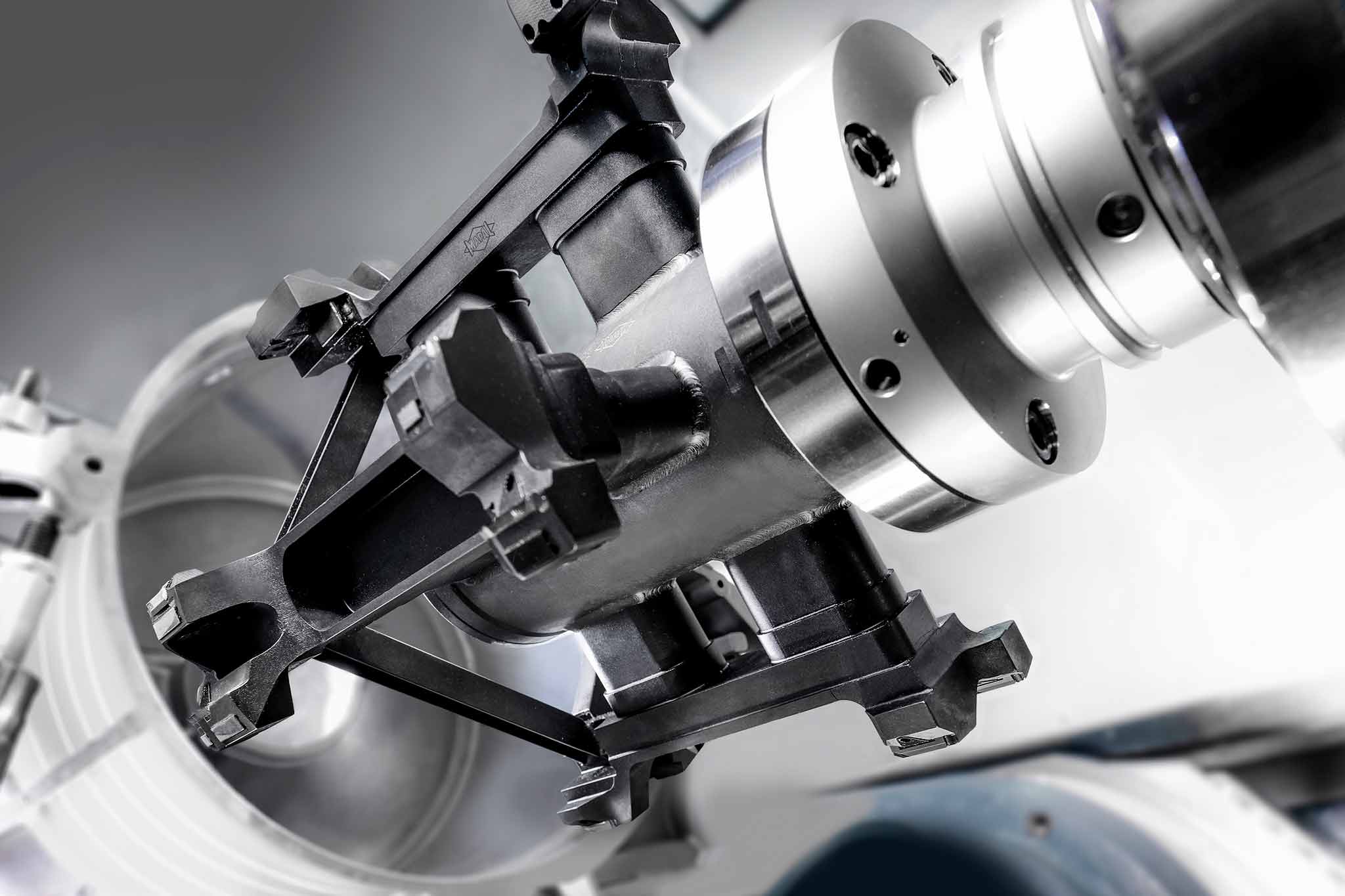
In teamwork to series production
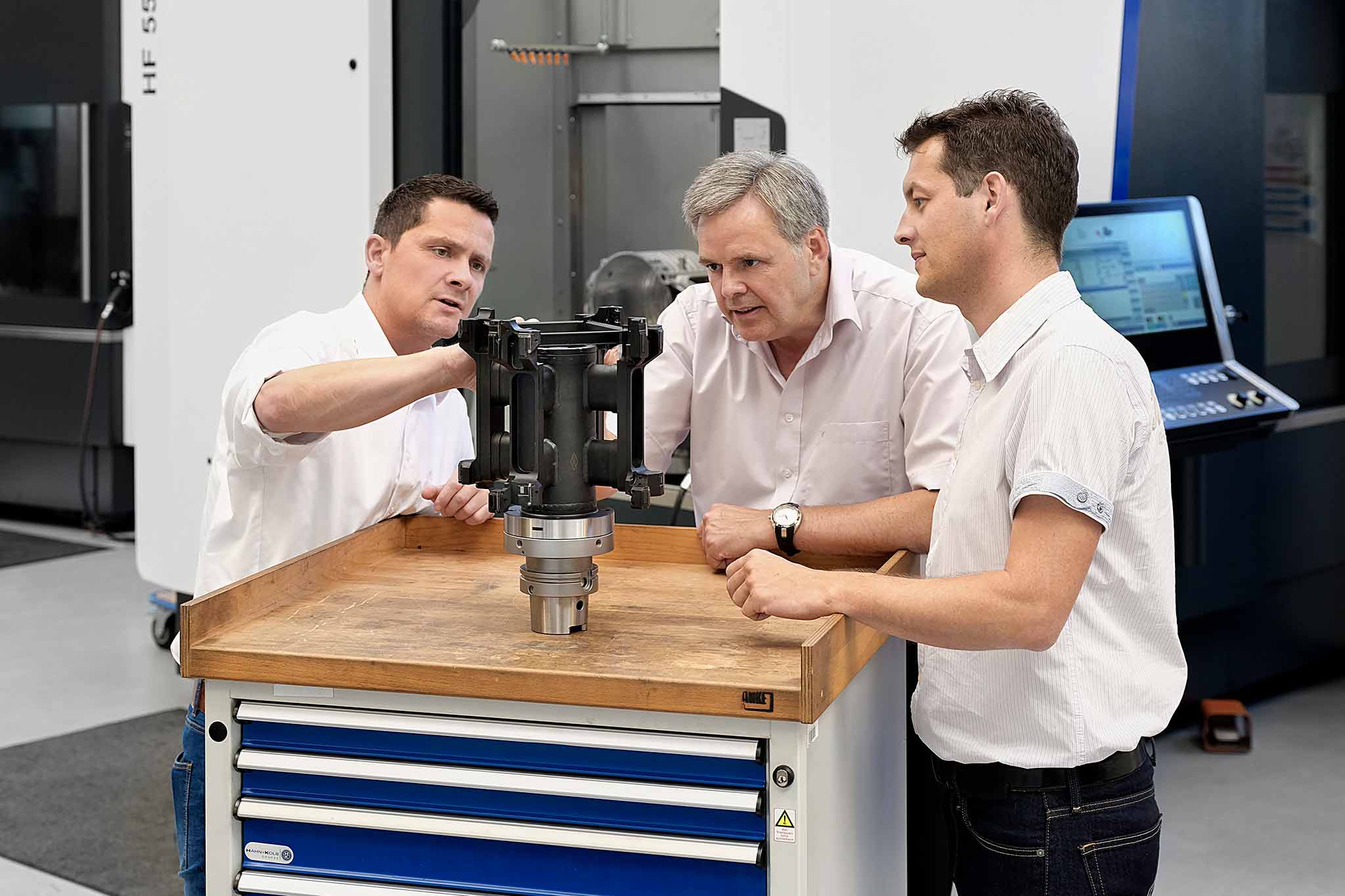
Stator bore as the greatest challenge
Machining the main bore for the stator housing – the stator bore – proved to be the greatest challenge of the entire manufacturing process. The process-reliable and cost-effective finish-machining of deep bores with large diameters is one of MAPAL’s key competitive differentiators. The tool manufacturer with strong ties to the automotive industry gained this expertise through decades of experience in fields such as machining gear housings. “We took our expertise and applied it to the requirements for the stator housing,” explains Meier.
For the collaborative project, MAPAL opted for lightweight and yet extremely robust tools in welded design that are ideally suited for the machining of the thin-walled housing. Despite the long projection length and the large diameter of more than 250 mm, the tool is highly accurate.
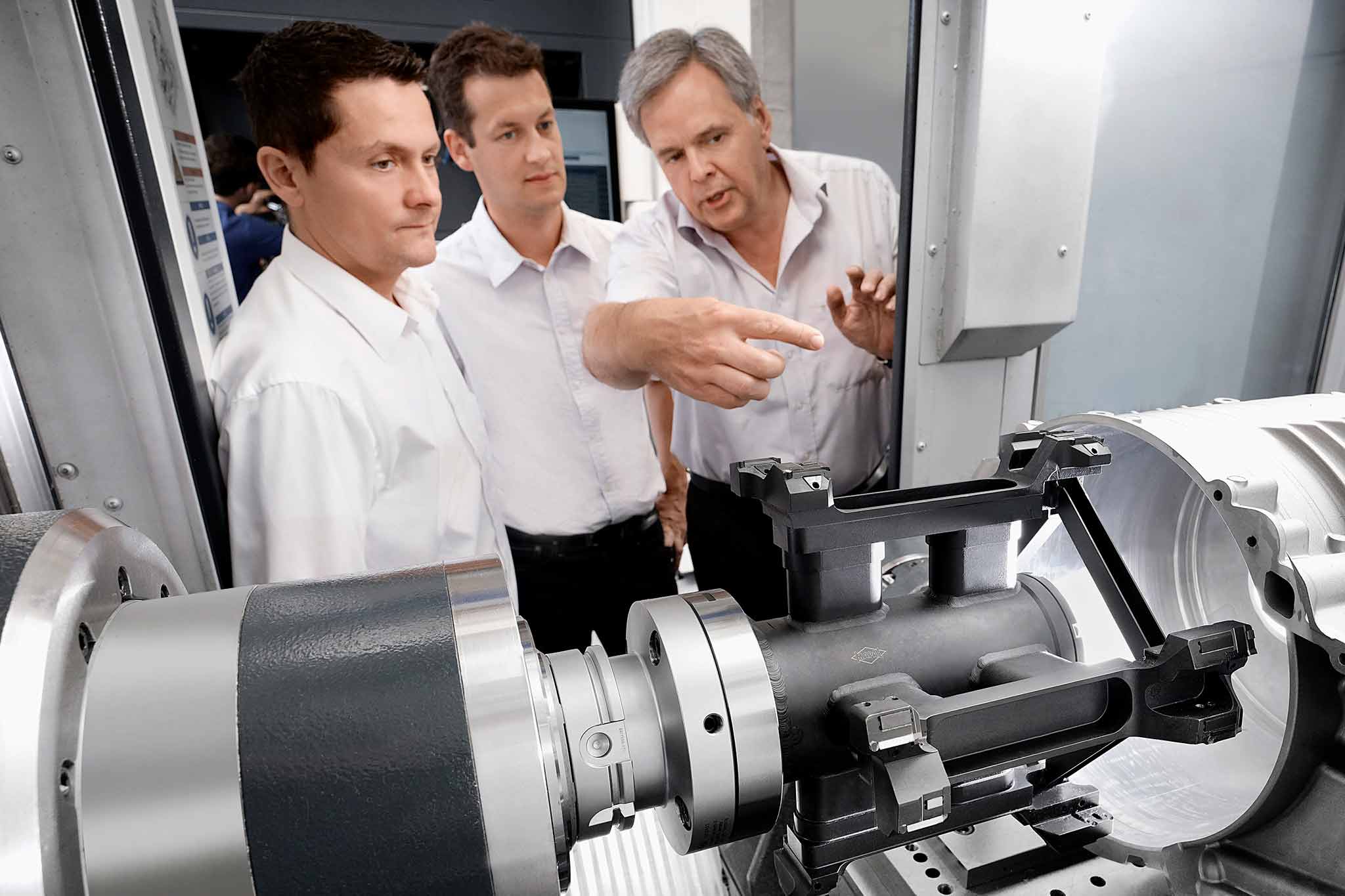
Light weight thanks to tubular design
For tools with “welded designs”, a tubular design is used for the tool body. These tools only have half the weight of a conventional boring bar. The carriers for the blades and the guide pads are welded on and support each other by means of connection ribs. This minimises the risk of chattering. It also ensures support during interrupted cuts. The resistance to bending is excellent thanks to the tubular design and the stabilising ribs.
“We split the machining of the main bore into three operations – pre-machining, semi-finishing and fine machining,” explains Norbert Meier. In the final stage, the main bore is machined to µm accuracy, using the fine boring tool in welded design. “The PCD-tipped blades are finely adjustable to achieve maximum accuracy,” says Meier. Guide pads support the tool in the bore.
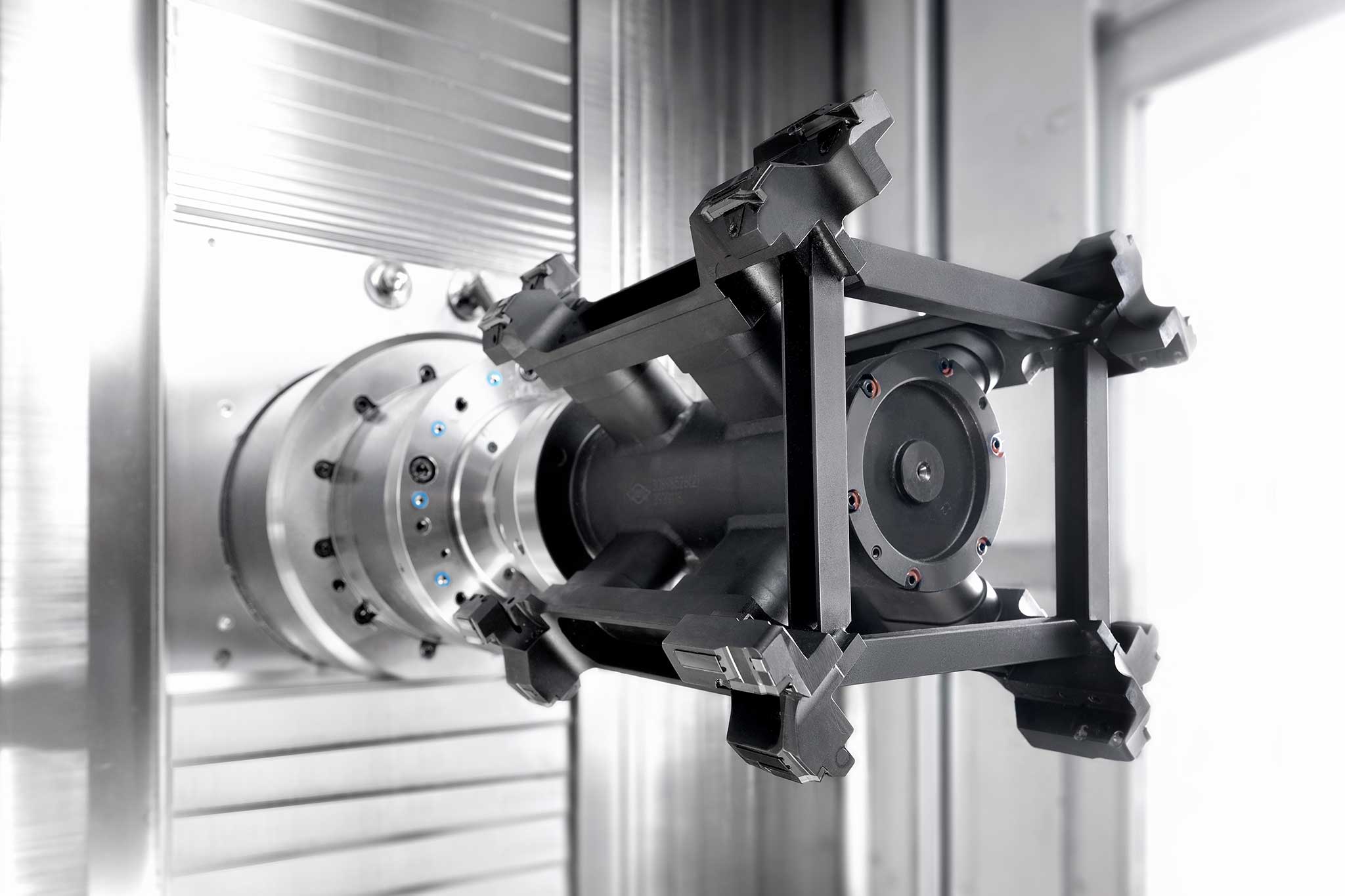
Successful implementation in series production
As for the stator bore, the machine and the tool manufacturers’ experts found appropriate solutions for all other machining operations. “Together, we demonstrated not only that completely machining the workpiece within the specified tolerances worked well, but also that the solution we found allows reliable manufacturing within the cycle times required,” says Dietmar Stehle with satisfaction. Apart from proving that the complete machining of the workpiece could be done within the specified tolerances, the partners were able to demonstrate that their joint solution enables process-capable manufacturing within the predefined cycle times.
Both HELLER and MAPAL gained sustainable know-how during the joint project, resulting in entirely new tool solutions, including self-aligning tools, allowing to achieve the required positional tolerances resulting from the necessary flip-over machining of the component. As a result, both companies succeeded in designing the perfect production process in the first expansion stage. Today, the customer manufactures a 5-digit production volume of the stator housing.
